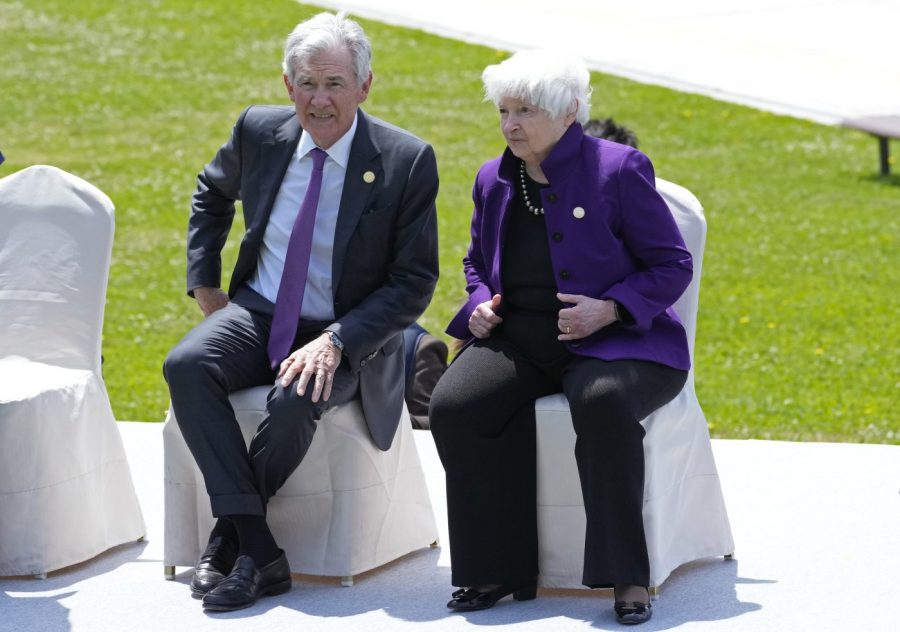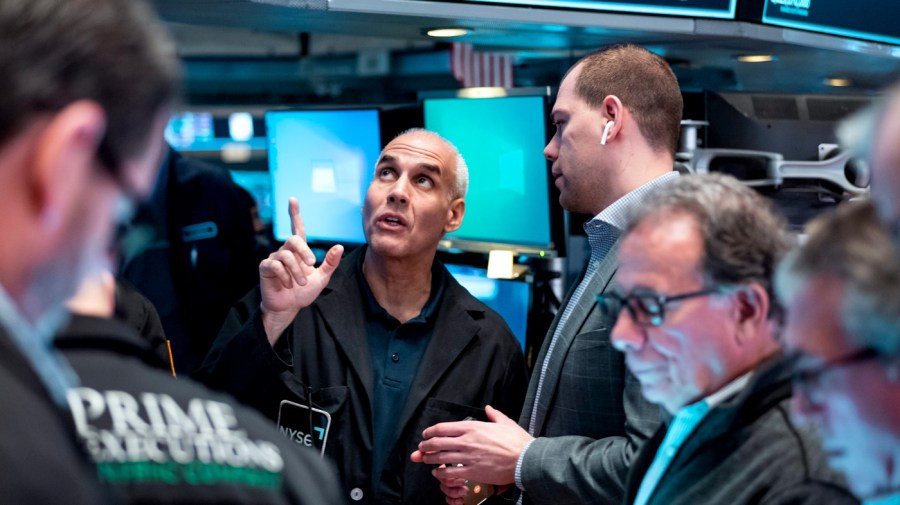How the debt crisis could affect your 401(k)
The high-stakes battle over the debt ceiling in Washington is spilling over into financial markets.
Stock values have whipsawed and bond yields have spiked in recent weeks as Wall Street becomes increasingly fearful of a federal default.
Experts say the damage could be minor and ultimately reversible if lawmakers can avert a default.
But the battle poses serious risks to retirement accounts — especially for Americans on the verge of leaving the labor market.
“The timing of a significant drop in the stock market is crucial for about 10 [million] to 20 million Americans,” said Teresa Ghilarducci, an economist and director of the Retirement Equity Lab.
Ghilarducci said the threat is greatest for baby boomers, who are reaching the end of their working years and have less time to recover from a hit to their retirement accounts than younger workers will.
“If the politics of the debt limit caused the stock market to decrease, even for a couple of months this year, it could have the effect that the steep decline in the stock market did in 2008,” she added.
The renewal of talks between the White House and House Republicans has soothed some concerns on Wall Street. But lawmakers still have much ground to cover before the U.S. runs out of cash as early as next month.
Treasury Secretary Janet Yellen warned earlier this week the country is already seeing the “impacts of brinksmanship,” noting the changes seen in the bonds market in recent weeks.
Borrowing costs have spiked as investors become increasingly worried about the federal government’s ability to pay its debts beyond June. Yellen warned lawmakers this week the U.S. could default as soon as June 1 and set off a “catastrophic” financial meltdown.
“Investors have become more reluctant to hold government debt that matures in early June,” Yellen said Tuesday at a conference hosted by the Independent Community Bankers of America.
“The impasse has already increased the debt burden to American taxpayers.”
Why the debt fight is rattling markets

Yellen cited reporting from the White House Council of Economic Advisers that showed a protracted default could “lead to a downturn as severe as the Great Recession.”
“In its simulation, over 8 million Americans lose their jobs. Business and consumer confidence take a substantial hit. The value of the stock market is slashed by about 45 percent — wiping out years of retirement and other household savings,” Yellen said.
Spiking interest rates are hitting the bond market hard, sapping another source of growth for retirement accounts.
Richard Johnson, senior fellow in the Income and Benefits Policy Center at the Urban Institute, said uncertainty about debt limit discussions could help drive up interest rates on a longer-term basis.
“Then higher interest rates reduce the value of bonds, and so for those people, that could be a pretty big hit,” he said. “And if the bond rates stay high after that, then that would be concerning.”
While higher rates could produce better results money in interest-bearing bank accounts, those invested in long-term bonds “are the ones that are going to get hit,” he added.
Ghilarducci warned the market volatility poses serious risks for 401(k) and individual retirement accounts (IRAs).
“People have been following sensible advice by putting more bonds in their retirement accounts as they got older, but the Federal Reserve and the debt limit has now made those bonds a lot less safe than they ever were,” she said, referring to the market-stifling impact of rate hikes.
“These are retail products that the workers manage themselves,” Ghilarducci said, referring to 401(k) plans and IRAs, “and they don’t have the kind of hedges that an endowment fund or a defined benefit plan would have.”
The long-term costs of brinksmanship

Experts are also concerned about the potential of mass exit from financial markets and retirement accounts if the debt fight — or, worse, a default — causes panic among Americans.
“One concern is that if this volatility — does it scare people from saving from investing in the stock market because they don’t want to lose their capital,” Johnson said.
“Then that becomes a concern and that could have a longer-term impact even if this event volatility doesn’t last.”
Craig Copeland, a senior research associate at the Employee Benefit Research Institute (EBRI), said recent internal polling showed “people were concerned about volatility and, therefore, they didn’t feel comfortable about retirement.”
“People that are near retirement age or making that decision…those people are going to be in a very difficult situation,” Copeland said.
“If they already have their date set, they could be in a situation that’s going to be very difficult to recover from.”
The EBRI is a research nonprofit funded by a wide range of investment managers, pension funds, and AARP.
Copeland added there is a risk Americans start “anticipating a default or start selling immediately if there is a default before really understanding the impact of it,” particularly younger workers.
“To react in a way that moves everything out, because of this one issue, would be shortsighted because you will not know when to jump back in,” he continued. “And you may miss some of the biggest gains.”
Copyright 2024 Nexstar Media Inc. All rights reserved. This material may not be published, broadcast, rewritten, or redistributed..

















